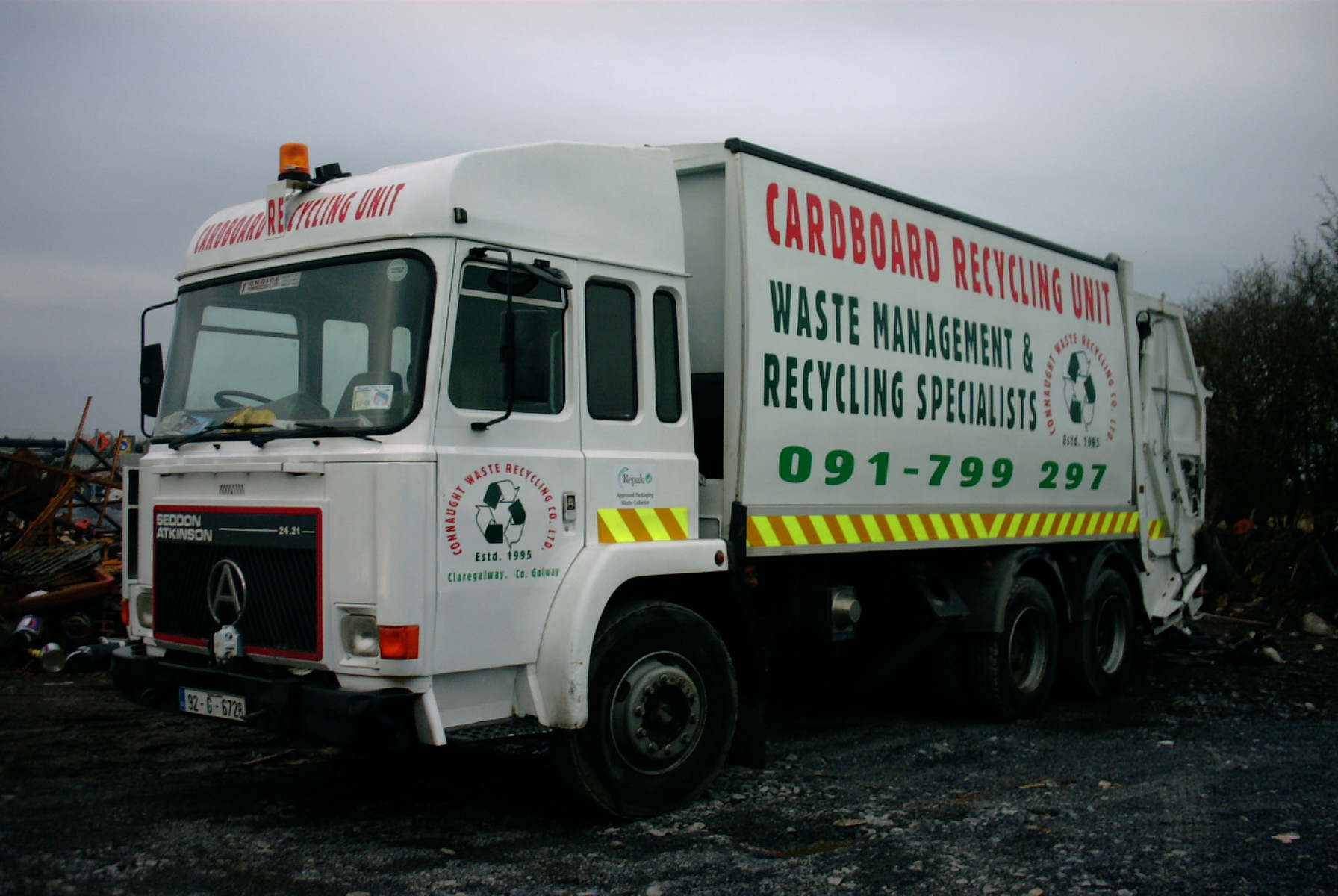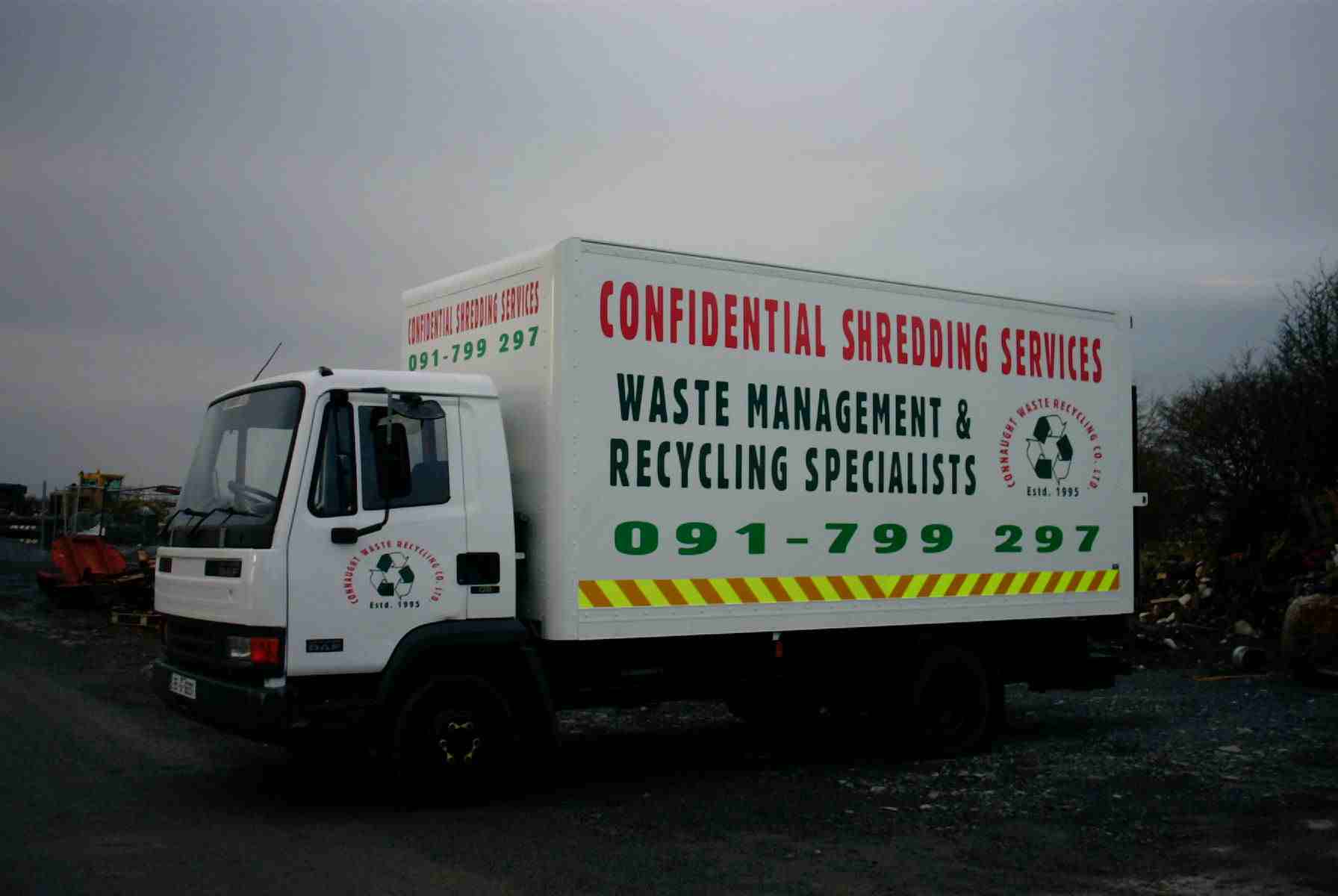     Connaught Waste Recycling was established in 1995 to assist companies set up an 'in-house' Waste Management System and to achieve the environment standards. To Date Connaught Waste Recycling have a customer base of over 500 satisfied customers who are availing of our Waste Management Services. We employ 22 full time staff both on site and in companies around the western region. We
recycle approximately 8000 tonnes of paper, cardboard, plastics and wood per year. A Waste Management System Includes: - Consultancy service to assess your companies needs
- Design and implement a Waste Management System specifically to suit your company
|  |
Waste Management Services available: - Waste Management Consultancy
- Office waste paper recycling
- Cardboard recycling
- Plastic
- Electronics
- Metal
- Oil
- Timber pallet
- Flourescent tube
- Batery
- Confidential Shredding
- Software Dismantling
- Supply of Bailing equipment (rental or Purchased)
- Supply operatives on-site to carry out bailing and janitorial duties
- Single vendor waste management service
- Organise the disposal of Hazardous waste
|  |
Benefits of a Waste Management System: - First step in achieving environmental standards
- Decrease in production
arising going to landfill
- Major savings in landfill charges
- Clean and efficient process to streamline your production
arising
- With a complete Waste Management System we look after all your recycling needs
Why is it important to recycle? | Recycling saves energy, thus reducing acid rain, global warming and air pollution. | | Recycling paper uses 60 percent less energy than manufacturing paper from virgin timber. | | Recycling a glass jar saves enough energy to light bulb for four hours. | | Recycling conserves valuable natural resources. | | Recycling metals minimizes the need for mining new minerals and decreases damage to wilderness. | | Recycling cuts down on landfill. | Five important reasons why we should recycle | | Saves Natural Resources | | By making products from recycled materials instead of virgin materials, we conserve land and reduce the need to drill for oil and dig for minerals. | | Saves Energy | | It usually takes less energy to make recycled products; recycled
aluminium, for example, takes 95% less energy than new aluminium from bauxite ore. | | Saves Clean Air and Water | | In most cases, making products from recycled materials creates less air pollution and water pollution than making products from virgin materials. | | Saves landfill space | | When the materials that you recycle go into new products, they don't go into landfills or incinerators, so landfill space is conserved. | | Saves Money and Creates Jobs | | The recycling process creates far more jobs than landfills or incinerators, and recycling can frequently be the least expensive waste management method for cities and towns. | Recycling contributes to a better environmentUsing secondary materials involves substantial energy savings when compared with primary production. Steel | 74% | Aluminium | 95% | Copper | 85% | Lead | 65% | Paper | 64% | Plastics | 80% | Secondary production is less polluting than primary production. | Producing from recycled paper means 35% less water pollution and 74% less air pollution. | | Producing from recycled steel means 86% less air pollution. |
     |